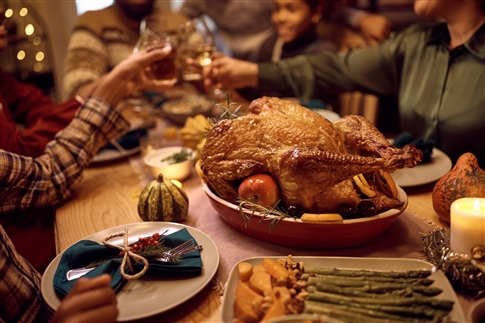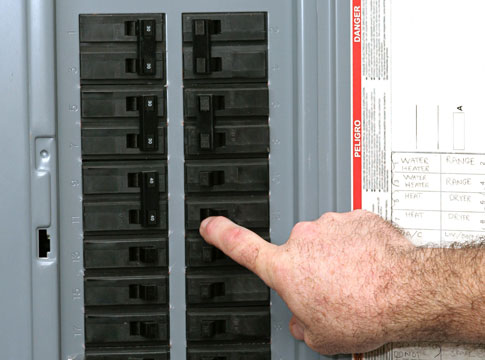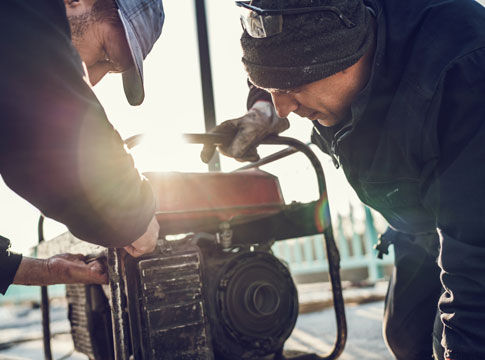Related News
Related News
-
This month, EWEB celebrates 115 years of service Eugene
EWEB celebrates 115 years serving Eugene. As our community grows and challenges increase from aging infrastructure, extreme weather, and climate impacts, EWEB is making thoughtful, long-term investments to ensure safe, reliable service for decades to come.
Find Out More -
EWEB and the UO extend energy generation study
The study is testing whether the UO’s on-site generator can bolster grid reliability and support climate and greenhouse gas reduction goals.
Find Out More -
EWEB Board of Commissioners Approves Employment Agreement with John Hairston as Next General Manager
“EWEB is a public treasure,” Hairston said. “I’m eager to listen to staff, learn from the community, and build on the strong foundation already in place."
Find Out More -
EWEB Board of Commissioners selects BPA administrator for general manager role
In a unanimous vote, EWEB’s Board voted to move forward with negotiating an employment offer to BPA’s John Hairston.
Find Out More -
EWEB and Lane Electric Cooperative sign agreement to transfer EWEB's McKenzie Valley customers
EWEB and Lane Electric Cooperative have reached an important milestone in transitioning electric service from EWEB to Lane Electric in the McKenzie Valley. The two utilities have officially signed agreements for EWEB to sell its electric service territory in the McKenzie Valley to Lane Electric.
Find Out More -
EWEB Board adopts 2026 organizational goals to guide utility priorities
At the January public meeting, EWEB adopted a new set of organizational goals for 2026, providing direction for our work priorities in the year ahead.
Find Out More -
Cold temperatures this week drive highest electricity demand of the winter so far
Frosty conditions in Eugene this week have driven electricity demand to the highest levels so far this winter as heaters strain to keep homes and businesses warm.
Find Out More -
Our Favorite Photos of 2025
For a final look-back at 2025, we’d like to share some of our favorite photos that illustrate our work day-in and day-out. We celebrate amazing teamwork, vital partnerships, and sing the praises of our individual champions and their quiet dedication to serving our community!
Find Out More -
EWEB and the UO launch energy generation pilot project
Pilot project gives EWEB the option to run UO’s on-site natural gas generator this winter, gathering valuable insight into the generator’s efficiency and reliability.
Find Out More -
Sustainability Snapshot - Celebrating Energy Efficiency Projects in the Community
Sustainability Snapshops highlight impactful projects completed by EWEB's Customer Solutions department, as a way to celebrate the meaningful work happening behind the scenes.
Find Out More -
McKenzie Valley electric service territory realignment study reaches key milestone
EWEB Commissioners approved a resolution authorizing the General Manager to negotiate and execute agreements with Lane Electric Cooperative regarding a potential realignment of electric service territory in the McKenzie Valley at the Board’s December meeting.
Find Out More -
EWEB Sets 2026 Budget and Rates, Advances Evaluation of McKenzie Valley Service Territory Realignment
Taken together, the 2026 budget and rate adjustments and the territory-realignment evaluation reflect EWEB’s dedication to responsible financial stewardship, modern, resilient utility infrastructure, and thoughtful planning for the future.
Find Out More -
Women in STEM: Meet the Hydro Project Engineer Building Habitat for Salmon
EWEB Engineer Associate Val Chang found her way to the McKenzie River from Los Angeles, inspired by heritage trips to the waters of Taiwan and key mentors along the way.
Find Out More -
Public Power Week Poster Contest Winners 2025
The results are in! View the winning posters from EWEB's 2025 Public Power Week Poster Contest.
Find Out More -
EWEB Hometown Heroes compete internationally
Out of 290 teams from 14 different countries, EWEB's Lineman Rodeo team places in the top third of competitors.
Find Out More - Show More
Let's talk turkey. If a disaster strikes, is your family ready?
November 16, 2023 • Robyn Smith, EWEB Communications

Many of us avoid discussing politics over the dinner table in the spirit of family peace and harmony. But here's a topic that can bring everyone together: emergency preparedness.
Thanksgiving is a perfect time to make or refresh your emergency plans. As you pass around the turkey and the pumpkin pie, talk with your family about what you would do in an emergency such as an ice storm or other disaster. Developing a plan can help ensure your family's safety and comfort during a winter storm that could knock out the electricity or water for days or even longer.
Put together a plan by discussing these six questions with your family:
How will we receive emergency alerts and warnings?
Many mobile devices will now bring you wireless emergency alerts—real-time information directly from local and federal sources. Check out these alert options:
Lane Alerts – Lane Alerts allows fire, police, and other emergency response agencies to issue alerts to residents in the event of severe weather, fire, flooding, hazardous materials, need for immediate evacuation, civil danger, local area emergencies, and missing persons.
In the event of an emergency, alerts will be delivered to you at the contact information you provided, including telephone, text messages and email. Learn more about receiving emergency alerts.
ShakeAlert – Because Minutes Matter. – The ShakeAlert Earthquake Early Warning System, managed by the U.S. Geological Survey, detects significant earthquakes quickly enough so that alerts can be delivered to people potentially seconds before shaking arrives. The purpose of the system is to reduce the impact of earthquakes to save lives and property. Learn more about how to prepare for an earthquake.
FEMA Mobile App – Learn what to do before, during, and after emergencies with safety tips, and receive weather alerts from the National Weather Service.
Update your EWEB account – To avoid steps during a power outage, please make sure your current cell phone number(s) are tied to your EWEB account. Call Customer Service at (541) 685-7000 or email EWEB.Answers@eweb.org to update your account.
What is our shelter plan?
Depending on your circumstances and the nature of the emergency, it may be best to stay where you are and avoid any uncertainty outside by "sheltering in place." Do you have an emergency stock of food, water, medicines, fuel and other supplies? If you needed to leave home, where would you go? To a family member or friend's home? A hotel? A shelter? Where is the closest public shelter located? Consider your options and discuss with your loved ones in advance. Learn more about how to build an emergency preparedness kit.
What is our evacuation route?
In a natural disaster, some roads and bridges may be unpassable. It's smart to plan ahead for a few different route options to your shelter location. Keep a map in your car in case your mobile navigation is unavailable. Build an emergency plan and share it with family members.
What is our family communication plan?
In an emergency, many people trying to use their mobile phones and landlines at the same time may create network congestion. Have a conversation with your family and agree on a plan for how you will communicate and reconnect. Here are some tips to consider:
- Create an emergency text message group. In many cases, text messages will go through when your call may not. If you have an “Emergency Text Group” already on your phone, reaching your loved ones in an emergency will be easier.
- Designate someone who lives outside of the area as a central contact, and make certain all family members know who to contact if they become separated.
- Agree on a meeting place in case you cannot connect via phone, text, or email.
- Keep portable cell phone power banks in your car, backpacks, etc.
- Make sure each family member has a printed list of phone numbers in case your cell phones aren't working.
What is our plan for loved ones with special needs?
Customers dependent on power for special medical equipment should have a plan for power outages. Talk to your medical provider about a power outage plan for medical devices powered by electricity and refrigerated medicines. Find out how long medication can be stored at higher temperatures and get specific guidance for any medications that are critical for life.
How can we prepare for a power outage?
Winter is coming, which increases the likelihood of storm-related power outages. It's important to be prepared, and there are simple actions you can take right now.
- Consider purchasing a backup generator and make sure your loved ones know how to use it safely. Learn more about generator safety.
- Have enough nonperishable food and water. Keep freezers and refrigerators closed. The refrigerator will keep food cold for about four hours. A full freezer will keep the temperature for about 48 hours. Monitor temperatures with a thermometer. Throw out food if the temperature is 40 degrees or higher.
- Install carbon monoxide detectors with battery backup in central locations on every level of your home. Avoid carbon monoxide poisoning. Generators, camp stoves or charcoal grills should always be used outdoors and at least 20 feet away from windows. Never use a gas stovetop or oven to heat your home. Turn off or disconnect appliances, equipment, or electronics. Power may return with momentary surges or spikes that can cause damage.
- Stock up on batteries and power banks to recharge cell phones and other electronic devices.
- Buy a battery-powered radio to receive updates if the power is out for an extended period of time.
- Keep your fuel tanks full. If the power goes out, you may want to use your grill or camp stove for cooking, so ensure you have an adequate fuel supply on hand. It's also a good idea to keep your car's tank full since gas station fuel pumps rely on electricity. If you have an Electric Vehicle, charge it up ahead of predicted storms.
- Ensure you know how to manually open and close your garage door or park your car outside ahead of a winter storm.
Learn more about power outage resources, including how to report an outage, see outage updates, and what to do if you see a downed power line here.
And don't forget your emergency kit! EWEB has a 12-month Pledge to Prepare Campaign to help you build up your emergency kit, and you can sign up for a monthly emailed checklist here.
Related Programs
We regularly receive reports of power outages that are actually a tripped breaker on the customer's circuit panel. Checking your circuit panel before reporting an outage can save you hassle and money.



